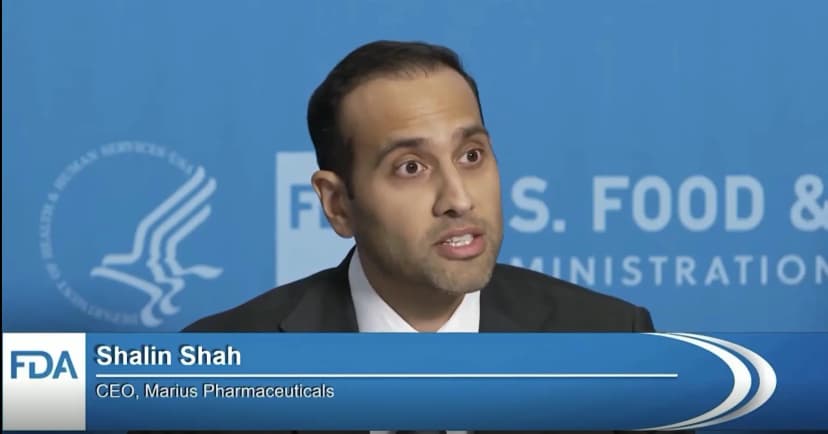Fasting and autophagy are two interconnected processes that play a significant role in maintaining cellular health and longevity. When we fast, our bodies initiate autophagy, a natural cleanup mechanism that removes damaged cell parts and recycles them for energy. Understanding how these processes work together can help us make informed decisions about our health and wellness.
Key Takeaways
- Autophagy helps keep cells healthy by removing damaged parts and recycling them.
- Fasting, especially intermittent fasting, can trigger autophagy and improve cellular function.
- Eating a balanced diet with plenty of fruits and vegetables supports autophagy.
- Staying hydrated is essential for cellular health and efficient autophagy.
- Exercise and stress management can further enhance the benefits of autophagy.
The Science Behind Autophagy
Definition and Origin of Autophagy
Autophagy is a natural process in our bodies that means "self-eating." It helps cells clean up by breaking down and recycling damaged parts. This process is essential for keeping our cells healthy and functioning well. Autophagy is crucial for maintaining balance in our cells, especially when nutrients are low.
Mechanisms of Autophagy
During autophagy, cells perform several important tasks:
- Elimination of waste: It removes damaged or dysfunctional parts of the cell.
- Nutrient recycling: It breaks down old components to provide essential nutrients for new cell parts.
- Stress response: It helps cells adapt to tough conditions, like lack of food or oxygen.
Benefits of Autophagy for Cellular Health
Autophagy has many benefits for our health, including:
- Reduced risk of chronic diseases: By cleaning up damaged cell parts, autophagy may lower the chances of diseases like heart disease and diabetes.
- Neurological protection: It helps prevent brain diseases by removing harmful proteins that can build up in our brains.
- Enhanced immunity: Autophagy strengthens our immune system by clearing out pathogens and speeding up the production of antibodies.
Autophagy is like a recycling program for our cells, helping them stay clean and efficient. By supporting this process, we can promote better health and longevity.
How Fasting Triggers Autophagy
Fasting is a powerful way to activate autophagy, a process that helps our cells clean up and recycle damaged parts. When we fast, our body goes through several changes that promote this cellular cleanup.
Nutrient Availability and Cellular Stress
During fasting, the body experiences a lack of nutrients, which creates a state of stress for the cells. This stress signals the cells to start autophagy. Here are some key points:
- Low nutrient levels trigger autophagy.
- Cells begin to recycle damaged components for energy.
- This process helps maintain cellular health and function.
Hormonal Changes During Fasting
Fasting leads to hormonal changes that support autophagy. Some important hormones include:
- Insulin: Levels drop, which encourages fat burning.
- Glucagon: Increases, promoting energy use from fat stores.
- Growth Hormone: Levels rise, aiding in fat loss and muscle preservation.
Energy Conservation and Cellular Efficiency
Fasting helps the body become more efficient in using energy. When the body is low on energy, it:
- Activates autophagy to recycle old cell parts.
- Shifts from using glucose to burning fat for energy.
- Produces ketones, which can fuel the brain and other organs.
Fasting not only helps with weight management but also boosts the body's ability to repair and rejuvenate itself through autophagy.
Optimal Fasting Strategies for Autophagy
Intermittent Fasting Methods
Intermittent fasting (IF) is a popular way to promote autophagy. Here are some common methods:
- Time-Restricted Feeding (TRF): Eat during a specific time frame, like 8 hours, and fast for the remaining 16 hours. A common example is the 16/8 method.
- Eat-Stop-Eat (ESE): Fast for a full 24 hours once or twice a week. You can drink water, black coffee, or tea during this time.
- 5:2 Diet: Eat normally for five days and limit calorie intake to 500-600 calories on two non-consecutive days.
Extended Fasting Benefits
Extended fasting means not eating for longer periods, usually 24 hours or more. This can help your body use autophagy for energy and repair. Here are some points to consider:
- Fasting for over 48 hours may enhance the autophagic response.
- It can help break down damaged cells and improve overall health.
- Always consult a healthcare professional before starting long fasts.
Calorie Restriction and Autophagy
Calorie restriction (CR) involves reducing your daily calorie intake by 10-40%. This can trigger autophagy and support cellular cleanup. Here are some tips:
- Plan your meals: Make sure you still get essential nutrients while reducing calories.
- Stay consistent: Aim for a long-term approach to see benefits over time.
- Monitor your health: Keep track of how your body responds to changes in diet.
Fasting can be a powerful tool for health, but it’s important to do it safely. Always listen to your body and consult with a healthcare provider if you have concerns.
Dietary Influences on Autophagy
Role of Polyphenols in Autophagy
Polyphenols are natural compounds found in many plant-based foods. They can help boost autophagy by reducing inflammation and oxidative stress. Some common sources include:
- Berries (like blueberries and strawberries)
- Green tea
- Dark chocolate
- Red wine
Including these foods in your diet can support cellular health and promote autophagy.
Balancing Protein Intake
Protein is essential for our bodies, but too much can hinder autophagy. Here are some tips for balancing protein:
- Choose lean protein sources like chicken, fish, and legumes.
- Consider reducing protein intake on fasting days.
- Focus on getting protein from whole foods rather than supplements.
Hydration and Cellular Health
Staying hydrated is crucial for overall health and can influence autophagy. Here’s how to maintain good hydration:
- Drink plenty of water throughout the day.
- Include hydrating foods like cucumbers, oranges, and watermelon in your meals.
- Limit sugary drinks and excessive caffeine.
Maintaining a balanced diet rich in nutrients, along with proper hydration, can significantly enhance the body's ability to perform autophagy effectively.
Factors Affecting Autophagy Efficiency
Autophagy is a vital process for maintaining cellular health, but its effectiveness can differ from person to person. Here are some important factors that influence how well autophagy works:
Impact of Age on Autophagy
- Age plays a significant role in autophagy efficiency. As people get older, their bodies may not trigger autophagy as effectively as in younger individuals. However, activating autophagy can still provide benefits for older adults.
Genetic Influences
- Genetics can affect how well autophagy functions in different people. Some individuals may have a more efficient autophagy system due to their genetic makeup.
Health Conditions and Autophagy
- Chronic health issues, such as diabetes and obesity, can disrupt autophagy. These conditions often lead to insulin resistance, which can interfere with the body's natural signals for autophagy.
Hormonal Changes
- Hormones like insulin and glucagon are crucial in regulating autophagy. Insulin generally inhibits autophagy, while glucagon promotes it. Hormonal imbalances can impact how effectively autophagy occurs during fasting.
Understanding these factors can help individuals optimize their approach to fasting and autophagy, leading to better cellular health and longevity.
Exercise and Autophagy
High-Intensity Interval Training (HIIT)
High-Intensity Interval Training (HIIT) is one of the best ways to boost autophagy. This type of exercise involves short bursts of intense activity followed by rest or low-intensity periods. Research shows that HIIT can significantly increase autophagy markers in muscle cells, promoting better cellular health.
Exercise-Induced Autophagy in Different Tissues
Autophagy can be triggered in various tissues through exercise. Here are some key points:
- Muscle Tissue: Exercise helps recycle damaged proteins and organelles, keeping muscle cells healthy.
- Liver: Physical activity can enhance liver function by promoting autophagy, which helps in detoxification.
- Brain: Regular exercise may support brain health by clearing out damaged cells and proteins, potentially reducing the risk of neurodegenerative diseases.
Combining Exercise with Fasting
Combining exercise with fasting can maximize the benefits of autophagy. Here’s how:
- Fasting before workouts: Exercising in a fasted state can enhance autophagy activation.
- Post-exercise nutrition: After exercising, consuming a balanced meal can help replenish energy and support recovery while still promoting autophagy.
- Regular routine: Establishing a consistent exercise and fasting schedule can lead to better overall health and longevity.
Engaging in regular physical activity not only boosts autophagy but also improves overall well-being. It’s a simple yet powerful way to support your body’s natural processes.
Potential Risks and Considerations
Risks of Excessive Autophagy
While autophagy is beneficial, too much of it can be harmful. Excessive autophagy may lead to:
- Cell death
- Muscle loss
- Impaired immune function
Consulting Healthcare Professionals
Before starting any fasting regimen, it’s crucial to:
- Talk to a healthcare provider.
- Discuss your health history and any medications you take.
- Get personalized advice to ensure safety.
Balancing Fasting with Nutritional Needs
Fasting should not compromise your nutrition. Here are some tips to maintain balance:
- Ensure adequate calorie intake during eating periods.
- Focus on nutrient-dense foods.
- Stay hydrated to support cellular functions.
It’s essential to approach fasting and autophagy with caution, especially if you have underlying health issues. Always prioritize your health and well-being.
Conclusion
In summary, understanding fasting and autophagy is essential for promoting cellular health and longevity. Fasting triggers autophagy, a process that helps clean out damaged cell parts and recycle them for energy. However, it’s important to find a balance, as both too little and too much autophagy can lead to health issues. Eating a balanced diet rich in fruits, vegetables, and proteins, along with staying hydrated, can support this process. As research continues, we learn more about how these practices can enhance our well-being and potentially extend our lifespan.
Frequently Asked Questions
What is autophagy?
Autophagy is a process where your cells clean up and recycle damaged parts. It helps keep your cells healthy and functioning well.
How does fasting help with autophagy?
When you fast, your body doesn’t get new food, which makes it stress a little. This stress triggers autophagy, allowing cells to recycle parts for energy.
Is it possible to have too much autophagy?
Yes, while autophagy is good, too much of it can cause problems. For example, in some diseases like cancer, it can help the bad cells survive.
Can I trigger autophagy by exercising?
Yes! Exercise, especially intense workouts, can help turn on autophagy, making your cells work better.
What foods can support autophagy?
Eating foods rich in polyphenols, like fruits, vegetables, and green tea, can help support autophagy.
How long should I fast to activate autophagy?
To start autophagy, it's generally good to fast for at least 16 hours, but longer fasts can have more benefits.























